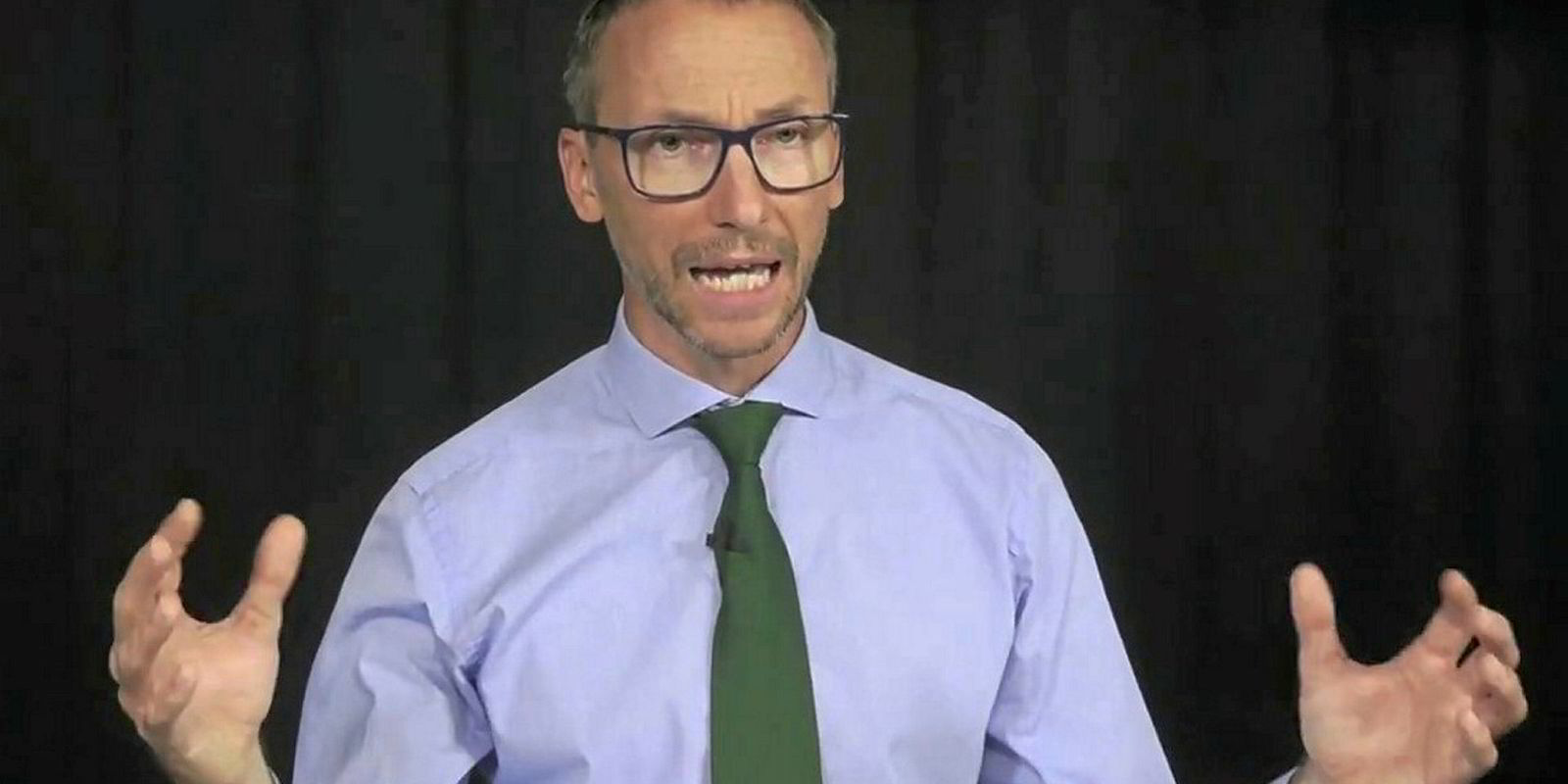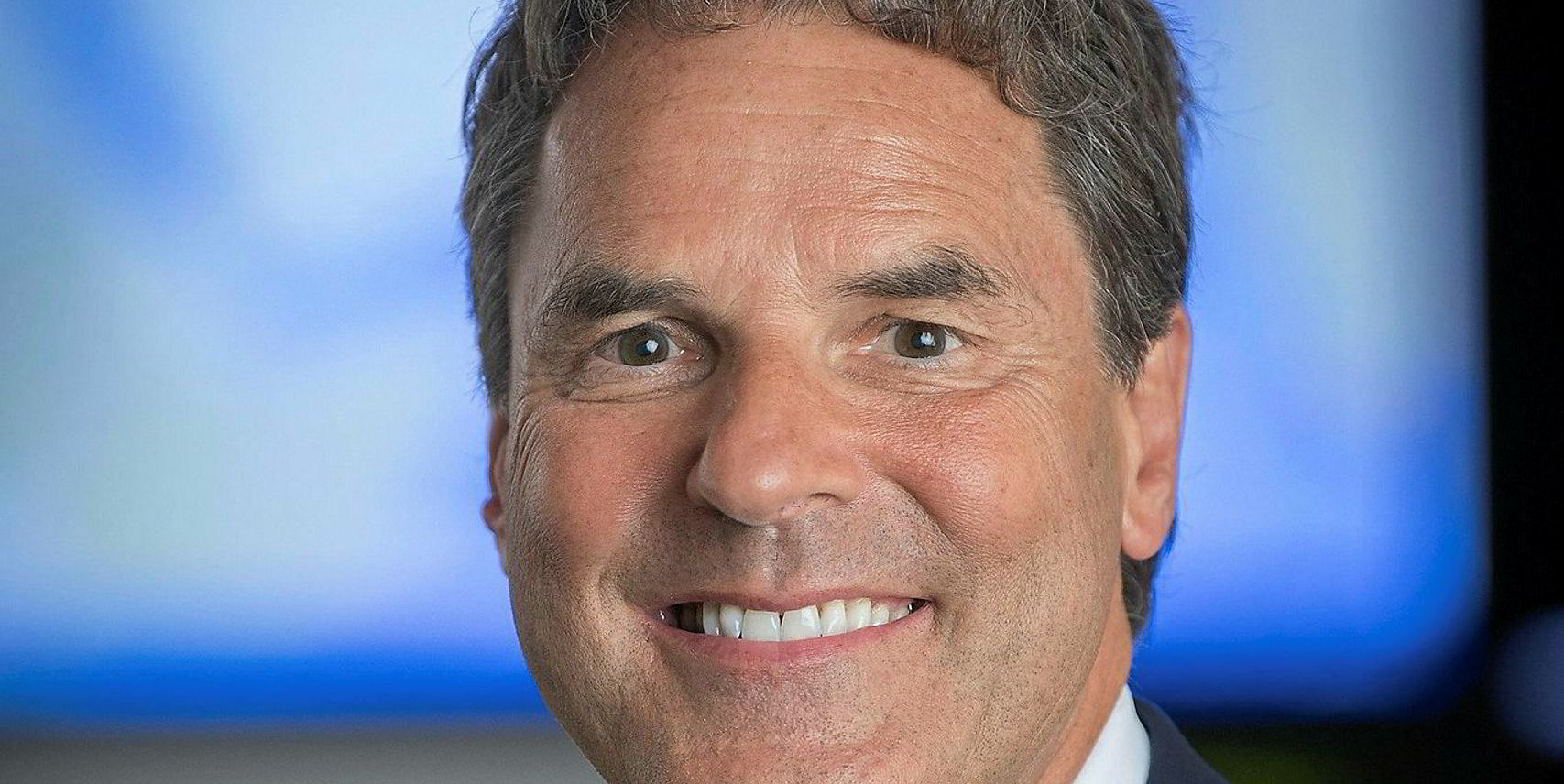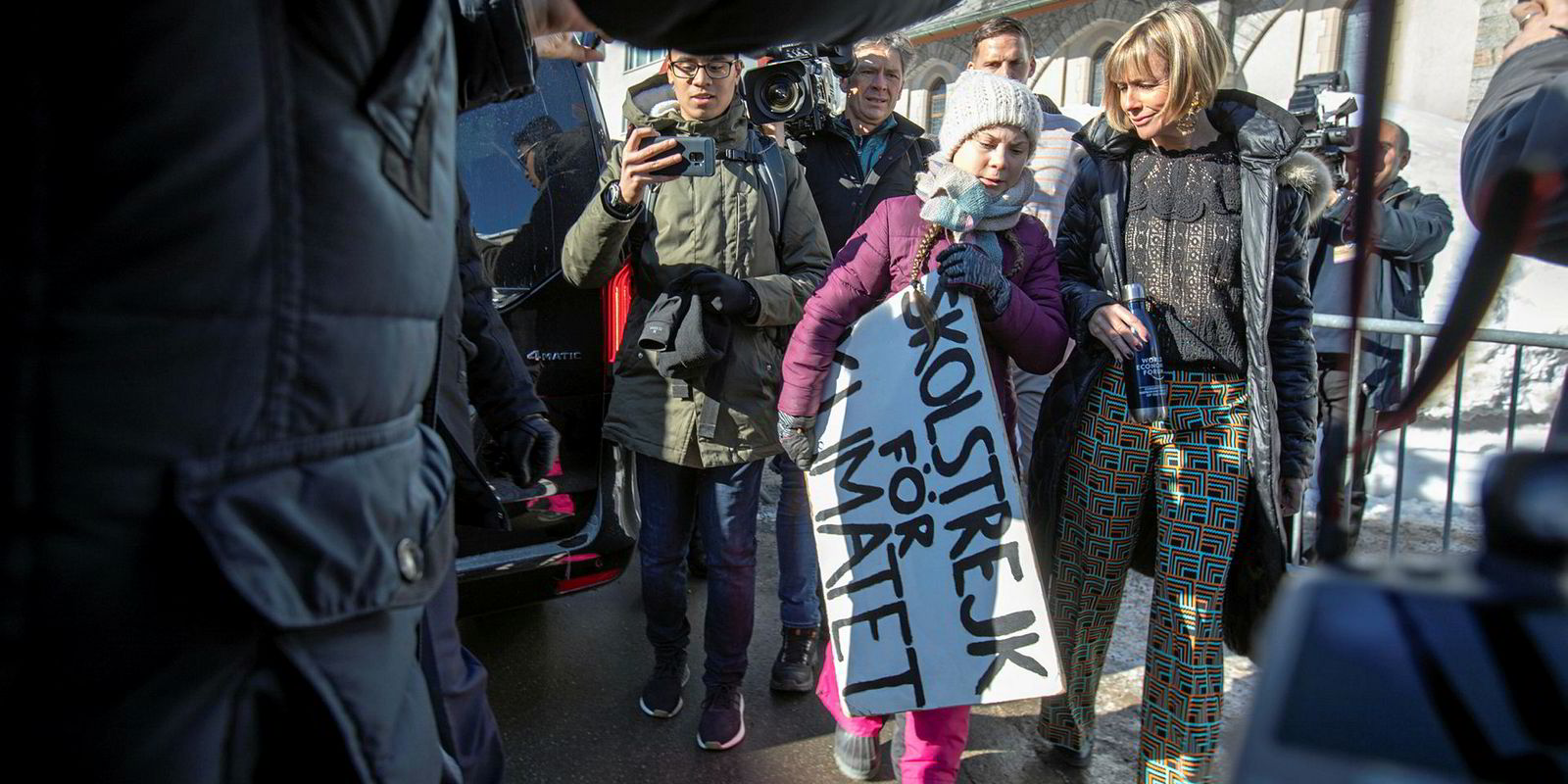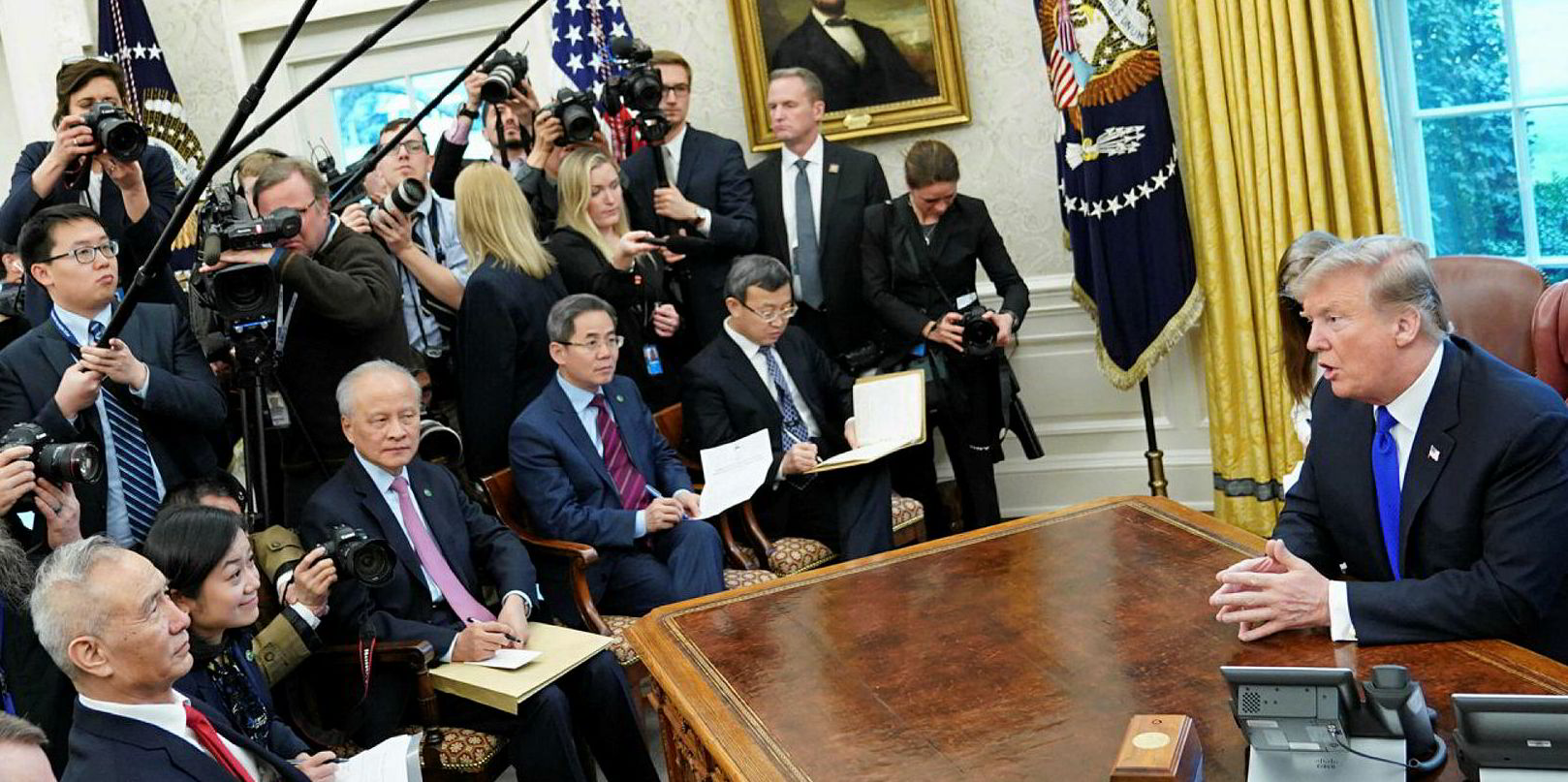Graffiti daubed on Shell’s London headquarters this week by climate protesters is a sign of disturbed times. Ironically, the huge Anglo-Dutch energy group, shipowner and charterer has done more than any other oil company to argue that it takes climate change seriously.
Chief executive Ben van Beurden has pledged to reduce the company’s CO2 emissions and lead the energy transition, not thwart it.
The assault on Shell’s offices during a wider protest by the environmental campaign group Extinction Rebellion suggests the message is not being heard — or is seen as “greenwash” in some quarters.
The febrile atmosphere in London is being made worse by divisive issues such as Brexit. But the Shell protest and Brexit are symptoms that wider political and economic norms are being challenged.
Cruise giant Carnival's AGM in London was also disrupted by campaigners wearing gas masks urging the company to switch to cleaner fuel.
Eco-campaigners are increasingly arguing — as one of their gurus, Canadian writer and activist Naomi Klein, has done for some time — that you cannot solve the climate crisis without tackling a dependence on continued economic growth and mineral extraction.
British environmentalist and writer George Monbiot got 1.5 million Twitter views last weekend after saying on a BBC programme: “We’ve got to go straight to the heart of capitalism and overthrow it.”
That is not a sentiment I can remember being aired on mainstream media before, and it caused a stir, positive and negative, on social media.
This argument is not just coming from the left. We are seeing huge challenges to globalisation and liberal democracy from the rise of the right-wing nationalist “strongman”.
The loudest political noise these days comes from Donald Trump, Narendra Modi, Vladimir Putin, Recep Tayyip Erdogan, Viktor Orban, Jair Bolsonaro and Matteo Salvini. All are men, and most are giving out some kind of populist, authoritarian if not protectionist messages.
They want to put their own nation state first. Some seem happy to engage in trade wars or other disputes with their neighbours — even starting rows with old friends, as France and Italy have been doing.
Because what was once seen with Trump as a one-off novelty act is rapidly turning into a political norm.
The maritime world must argue the case for global trade and international governance ever more fervently
Trump, Putin and others seem to have their own visions of capitalism, partly built around their prejudices. The nationalist and protectionist policies being pursued by some of these leaders are calling into question the commercial norms.
And on the sidelines are challengers such as Bernie Sanders in the US and Jeremy Corbyn in Britain who are happy to describe themselves as socialists.
It is hard to see what all this turbulence is doing for the shipping community in terms of international trade and regulation. The maritime world must argue the case for global trade and international governance ever more fervently.
But it is not just left-wing thinkers, right-wing nationalists or greens who are ringing the alarm bells.
Jeremy Grantham, co-founder of Boston-based old-school asset management firm GMO, wrote in a note to clients last summer that a dangerous strain of business practice had taken hold in the US that must be challenged.
“We face a form of capitalism that has hardened its focus to short-term profit maximisation with little or no apparent interest in social good” such as tackling climate change, he said.
And this week, Mark Carney, the governor of the Bank of England, and Villeroy de Galhau, the governor of the Banque de France, said jointly that the global financial system faced an existential threat from climate change and must take urgent steps to reform.
No mainstream Western political parties are yet calling for the “overthrow of capitalism” but many of these new leaders are changing its form as we speak.
More positively, there are a lot of new ideas about how a greener economy could be run — and often they are coming from women economists such as Kate Raworth, Ann Pettifor and Mariana Mazzucato.
Melding environmental and social justice
One of the most high-profile opponents standing up to Trump in the US is the 29-year-old Democrat Alexandria Ocasio-Cortez, who has been leading calls for the country to adopt her Green New Deal, based on melding environmental and social justice.
Is there something about age and gender in all this? As more women come into senior roles in shipping, will the industry change in a significant way too?
If, instead of progressing with the ugly strongman model, we sail into a new world of sustainability and a more enlightened form of capitalism, we will need smarter political and industry leaders.
Surely more will be women, although Shell having a female finance director, Jessica Uhl, has not stopped the graffiti.








